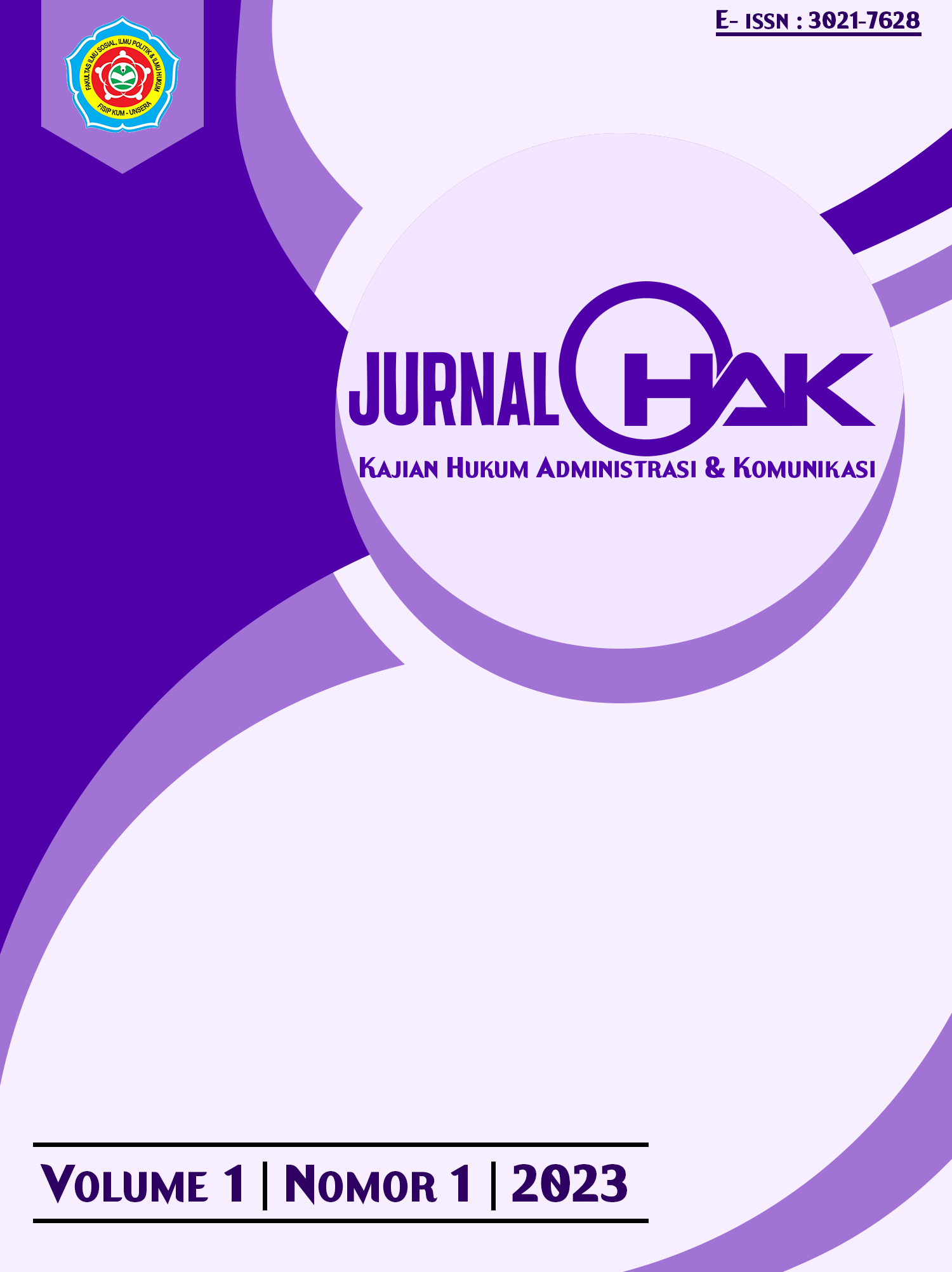Tinjauan Yuridis Terhadap Putusan Bebas Dalam Tindak Pidana Pencemaran Nama Baik di Media Sosial
DOI:
https://doi.org/10.30656/jhak.v1i1.7331Abstract
When a criminal case is resolved in court, the public expects legal certainty and justice regarding the resolution of the case, namely the Judge's Decision. In the Criminal Procedure Code, only the term "free decision" is recognized, without the qualification "pure freedom" or "impure freedom". However, in the development of world criminal justice practice, the "free decision" (vrijspraak) decided by this judge developed and the terms "pure freedom" and "pure non-free" were known. Knowing the problem of acquittals in criminal cases, this focuses on defamation through social media. This research is normative juridical research used to examine the application of law in society, whether it is in accordance with applicable regulations. The research approach used is a qualitative descriptive approach. The data analysis used is a qualitative data analysis technique. The research method uses qualitative methods. The data obtained from the research results will be analyzed descriptively, describing and using the data which will then be analyzed qualitatively. So that we obtain the legal basis for free decision making, the obstacles faced, how to overcome obstacles and so on. The research results show that there is an understanding of "freedom" in people who do not understand the law (men on the street). Meanwhile, for understanding criminal law there is a difference between vrijspraak and "free from all legal demands". Efforts that can be taken to handle the acquittal are to file a cassation with the Supreme Court by first proving that the acquittal is not a genuine acquittal.



